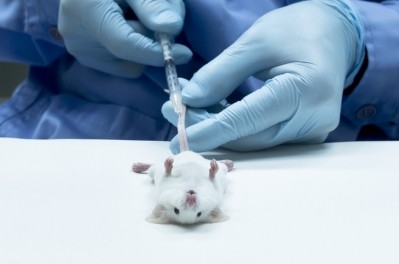Scientists detect suicidal ideation via saliva bacteria

The oral-gut-brain axis describes a pathway by which oral microbiota may influence neurological and systemic disorders either directly or indirectly, including periodontitis and non-oral systemic disease28. Within the saliva resides a complex network of microbes that closely represents the structure of commensal bacteria in the gut.
New research out of the University of Florida has found that college students who reported recent thoughts of suicide had saliva that was remarkably different than those who had not experienced suicidal thinking in the last two weeks.
According to a 2020 Centers for Disease Control and Prevention (CDC) report, as many as one in four people in the United States between ages 18 and 24 had seriously contemplated suicide in the month prior. With this statistic in mind, the researchers explored genetics, lifestyle factors and salivary bacteria for their associations with suicidal ideation in nearly 500 college students.
The report highlights the importance of the oral-gut-brain axis, a pathway by which oral microbiota may influence neurological and systemic disorders either directly or indirectly, including periodontitis and non-oral systemic disease. The saliva houses a complex network of microbes that closely represents the structure of commensal bacteria in the gut.
“Saliva was chosen because we thought students would be far more willing to donate saliva than stool,” explained Professor Eric Triplett, chair of the microbiology and cell science department and senior author of the study. “The plan was to create a real microbiome project with students’ samples. The datasets generated could be used in courses to give our students research experiences.”
The Research
The study analyzed saliva collected from 489 undergraduate students taking classes in the microbiology and cell science department at UF. These students also completed the Patient Health Questionnaire-9, a survey used to screen for depression symptoms and asks respondents to share if they have had thoughts of suicide within the last two weeks. (Those who reported recent suicidal ideation were immediately referred to on-campus mental health services.)
Findings
Controlling for the influence of other factors known to impact mental health, such as diet and sleep, the researchers found that students with recent suicidal thoughts had higher levels of bacteria associated with periodontal disease and other inflammatory health conditions.
The team also found that these students had lower levels of Alloprevotella rava, a bacterium that produces a compound which promotes brain health. These students also shared a genetic variation that the researchers found may influence the presence of Alloprevotella rava in the mouth.
“Biomarkers were identified that were associated with suicidal ideation (SI). Genetic connections to SI were also found. These associations still held when accounting for important confounders of microbiome or depression, such as diet and sleep issues,” Triplett told NutraIngredients-USA.
“Much more work is needed”
“For the first time, we show that human genes associated with microbes are are associated with mental health – providing further evidence that microbes may influence mental health in people with a certain genetic predisposition. And immune-mediating genes could be implicated as well as variants previously associated with depression in the broader literature. Much more work is needed on this,” Triplett said.
“These results are exciting because they tell us which bacteria we need to look at more closely," said Angelica Ahrens, first author of the study and a postdoctoral researcher in the UF/IFAS microbiology and cell science department, adding that the next question is 'what are these bacteria doing biologically that affects mental health?'
Data collection
Triplett told us that we have only scratched the surface of salivary and genetic biomarkers associated with mental health: “We need to go beyond SI and look at depression generally. We need to look for other genetic markers. One way to help with these questions is to build a larger population of students involved. That is in progress. We also want to look at change across time and what precedes depression, or the resolution. For this, we need longitudinal data. We also plan to include other important confounds and mental health related variables. Analytically, we plan to model networks of these bacteria within the ecological niche, rather than a single bacterial association. The most interesting bacteria, we must follow up on with cultures or metagenomics to understand how the biology could impact the host, for instance - could it contribute to inflammation?”
While the initial study required students to physically come to the lab to provide a saliva sample, participants can now send in their saliva sample by mail using a collection kit developed by the researchers.
“This at-home method is very convenient for students and also helps us build a more diverse dataset and test different variables. For example, we would like to look at the saliva microbiome of people who have been diagnosed with depression and are taking antidepressants,” Ahrens said. “Eventually, we hope this line of research could help predict suicidal ideation based on a person’s microbiome and could inform pro- or prebiotic treatments for those at risk.”
Triplett said that he hopes this work encourages others to study the biology of depression and find solutions for those with depression where anti-depressants don’t work. “Now we have data on antidepressants and are including this in our analysis. Follow-up work will also involve inflammatory markers, metabolites, and possibly other biological specimens for back-translation,” he said.
Source: Scientific Reports
2022 DOI 10.1038/s41598-022-18020-2
“Saliva microbiome, dietary, and genetic markers are associated with suicidal ideation in university students”
Authors: A Ahrens et al.
















